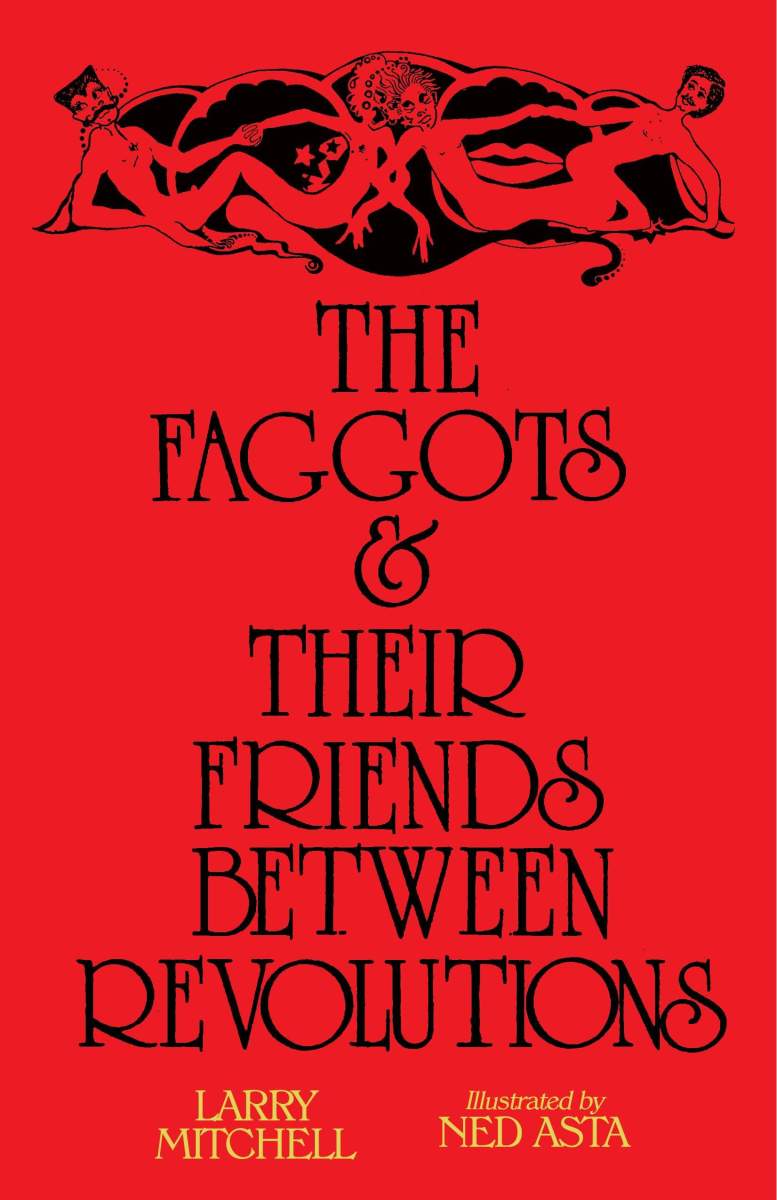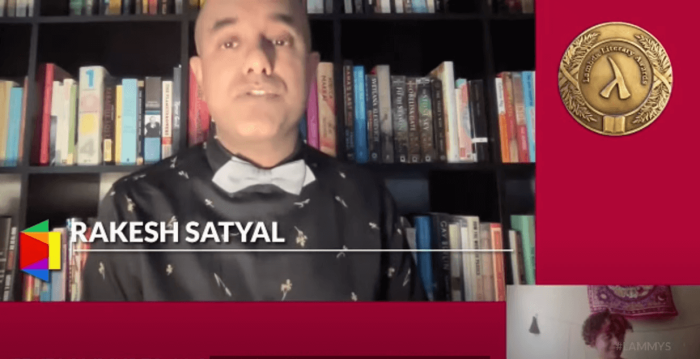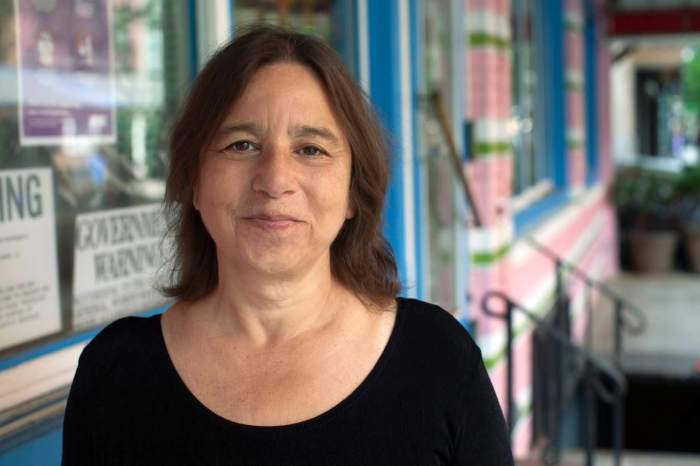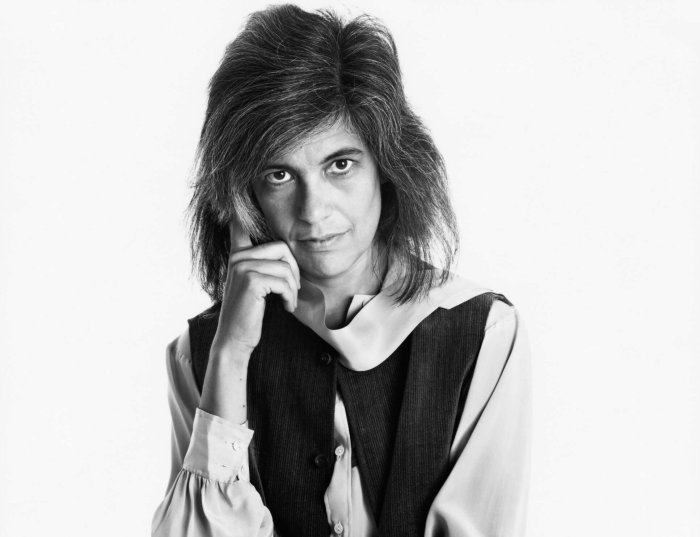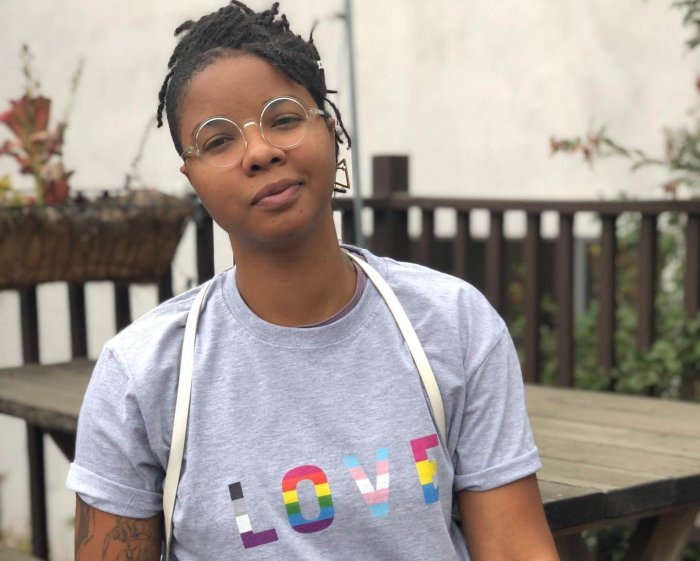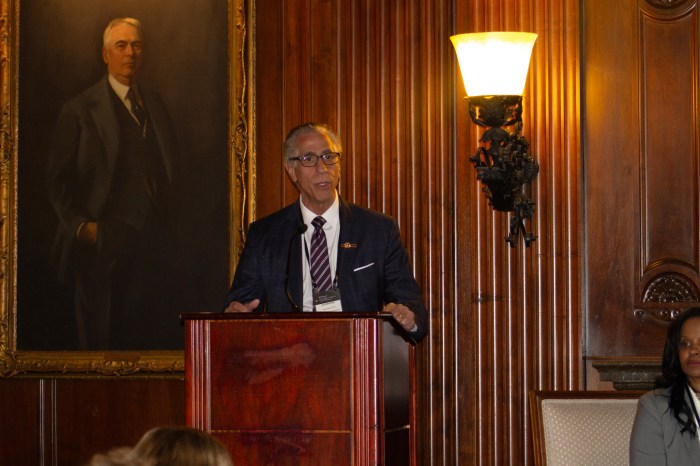“The Faggots and Their Friends Between Revolutions” is a gossamer, sex-driven fantasy — and/or manifesto — and/or survival guide — for the moral and mental uplift of radical queers. It’s our story of perseverance in the empire of Ramrod. Ruled by “rich men without color,” Ramrod is a falling, failing power known for its fierce weapons and elaborate violence. Fashion-wise, the rich men without color only wear grey, but that’s OK; the faggots wear all the other colors.
Ramrod’s maximum leader is named Warren-And-His-Fuckpole. Warren, the most paranoid, ergo the most vicious, of colorless men, seeks to rationalize with the faggots’ leader. But the faggots don’t have a leader, nor do they have much rationality. Ditto their friends. The faggots and their friends survive Ramrod with their homemade grandeur and the sacred pleasure of promiscuous love play. They dream of glorious, nonviolent revolution.
The faggots have the routines of community and the rhythms of the streets to live by: late day tea, walks, accidental encounters, organizing, issuing manifestoes, putting on plays, changing lovers, shifting alliances and living arrangements and gossip, endless gossip… They created the ritual of the brief encounter, the ritual of dying love, and the ritual of outrageousness. They live in a world invisible to the men.
Written in 1977 by Larry Mitchell and illustrated by Ned Asta, “Faggots” was influenced not only by liberation movements of the time but also by Lavender Hill, a gay commune that began in the late 1960s and existed for about 10 years outside Ithaca, New York. The book’s resident faggots, known here by fruity monikers like Heavenly Blue, Loose Tomato, Hollyhock, Pinetree, and Moonbeam, were based on Mitchell’s friends in and around the commune. Their peaceable queendom also sheltered denizens from communities of other Ramrod exiles: the women who love women, the queens, the fairies…
“Blechh,” you say? “Today’s queers don’t need escapist fantasy. Life here in Ramrod is good, now that we’re allowed to get married and join the Ramrod military. All hail Ramrod!”
If you actually said that, you suck. Also, you have not noticed that, in 2021, we live in an obscenely unequal and dangerous world. We still live between revolutions.
In real life, Mitchell’s faggots and friends were radicalized white people, mostly Jews and Italians, who had been changed by Black Power activism, Vietnam War protests, and the beginnings of the women’s and gay liberation movements. They came from a generation steeped in the rigors of global, anti-colonial revolution — Che Guevara’s call for “two-three-many Vietnams,” for example — with a “vanguard” and “the masses” and, of course, “political correctness.”
So back in the day, it must have been sobering to read that the faggots had never been asked to join the vanguard:
The faggots, it was noticed, want only to eat so they can play love play while the vanguard demands endless talk about the hunger of others and the seriousness of work. The faggots, it was noticed, are too quick to believe that the revolution had come and so too quick to celebrate. The vanguard demands that the revolution go on forever and so demands that the celebration only be planned, never enacted.
When “Faggots” was first published, prospects of a revolution were actually receding. The war in Vietnam had been won (by the Vietnamese, lest we forget) three years before; the Black Panther Party had been infiltrated and forced underground; and much political activism was turning inward. Many people with the time and resources began to use them to consult Mother-Goddess tarot decks, invest in essential oil startups, figure out how to navigate non-monogamy, and publish wistful books about matriarchal utopias.
Interestingly, in a climate where books like Sally Gearhart’s “The Wanderground” and Monique Wittig’s “Les Guérillères” appeared on both mainstream and countercultural sales charts, it was hard to find a publisher for “The Faggots and Their Friends,” which, if not certifiably matriarchal with its mentions of “tasty orgasm juice,” was at least deeply anti-patriarchal. So Larry Mitchell started the Calamus Press to publish his book, which became deeply loved but remained mostly outside the mainstream. Once out of print, it was Xeroxed or PDF’d; passed around, but not republished — until 2019, when Nightboat Books reissued it with a richly historical introduction by Morgan Bassichis and a stunning preface by Tourmaline: two queers of the millennial persuasion.
This rendition of “The Faggots and Friends Between Revolutions” is not kinky nostalgia; the book’s great value is its celebration of the perennial need among outcasts to hold each other. Now, when political organizing tends to move more horizontally than hierarchically; when the LGBTQ+ movement, along with those like the Movement for Black Lives, have little or no top-down chain of command, and it’s becoming crucial to practice “self-care,” we can forget we still need friendship and beauty and connection. That need is shared by faggots, friends, queers — by anybody, in fact, with an inveterate hunger to do good for the world at the last minute.
Besides having sex, queers and faggots like to have fun — but they also occasionally have to go mad. Because, back in Ramrod, where you’re now allowed to get married and take part in government pillage, there’s scant human connection. You’re expected to FIT IN, get a BRAND, and you’re nobody until you have 50K Twitter followers.
In “Faggots,” the Hollyhock character emotionally shatters from too much worry over bills and strange men watching the house. Tourmaline, in the preface, mentions her own 2021 worry that she’ll go mad. In fact, she already has, for “imagining that respectability and responsibility could stop the immense violences that so many of us have to live through and often die from.”
But Tourmaline, an activist and filmmaker whose work focuses on the power of Black queer and trans people, is wise enough to know that there is wisdom in hell — and she’s brave enough to return and share it. “I am still here,” she writes, “because I have also been held, in these moments of despair, by lilac and pine tree and moonbeam and loose tomato and hollyhock…
I have become undone and this has kept me alive. The faggots have helped me believe that if we are to ever make it to that next revolution it will be through becoming undone… The faggots are constantly reminding me that in moments of apparent scarcity, our best defense is to respond with abundance.”
THE FAGGOTS AND THEIR FRIENDS BETWEEN REVOLUTIONS | By Larry Mitchell | Nightboat Books | 128 pages | $9.99 – $16.95

